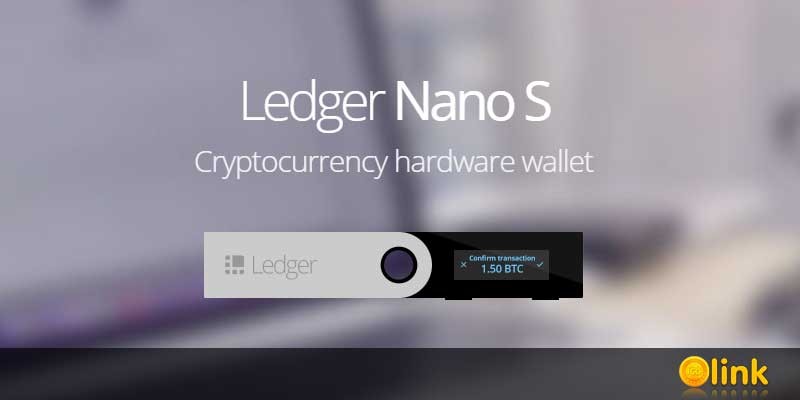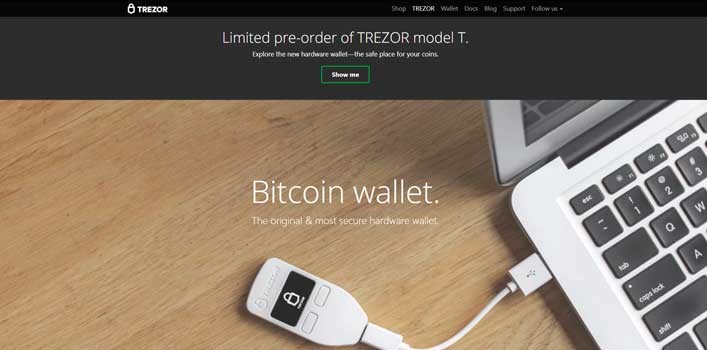cryptocurrency wallet
Here you will find all posts tagged cryptocurrency wallet
About cryptocurrency wallet ℹ️
A cryptocurrency wallet is a digital tool or application that allows users to securely store, send, and receive cryptocurrencies. Similar to a traditional wallet for fiat currency, a cryptocurrency wallet stores the private keys needed to access and manage one's digital assets on the blockchain. There are several types of cryptocurrency wallets, each offering different levels of security, convenience, and accessibility:Software wallets: These are applications or programs that users can download and install on their desktop computers or mobile devices. Software wallets can be further categorized into: Desktop wallets: Installed on a user's computer and accessible only from that device. Mobile wallets: Installed on a user's smartphone or tablet, providing convenient access to cryptocurrencies on the go. Web wallets: Hosted online and accessible through a web browser, offering accessibility from any internet-connected device. Hardware wallets: These are physical devices that store the user's private keys offline, providing an extra layer of security against online threats such as hacking and malware. Hardware wallets are typically considered one of the most secure options for storing large amounts of cryptocurrency. Paper wallets: A paper wallet is a physical document that contains a user's public and private keys in the form of QR codes or alphanumeric strings. Paper wallets are considered highly secure as they are not susceptible to hacking or online attacks, but they require careful storage to prevent loss or damage. Custodial wallets: These are wallets provided by third-party service providers, such as cryptocurrency exchanges or online wallet platforms. In custodial wallets, the private keys are held and managed by the service provider, giving users convenience but sacrificing some level of control and security. Regardless of the type, it is essential for users to choose a cryptocurrency wallet that aligns with their security preferences and usage needs. It's also crucial to follow best practices for wallet security, such as enabling two-factor authentication, keeping backups of private keys, and avoiding sharing sensitive information with others. By taking these precautions, users can help ensure the safety and integrity of their cryptocurrency holdings.
Shifting Tides: The Digital Currency Dilemma and Economic Sovereignty
In most countries of the world, people are allowed to buy and sell Bitcoins and other crypto-currencies for profit from investments. However, as we have seen in countries such as Bangladesh, Bolivia, Ecuador and Nepal, the sudden prohibition of Bitcoin may be around the corner and very quickly become a problem for active traders. This in itself gives sufficient grounds for the crypto-investors to pay more attention to confidentiality and anonymity when trading and making transactions with cryptocurrencies.
Backed by trusted investors and used by millions of customers globally, Coinbase is one of the most popular and well-known brokers, trading platforms and Wallets in the world. The Coinbase platform makes it easy to securely buy, use, store and trade digital currency. Users can purchase bitcoins, Ether and now Litecoin from Coinbase through a digital walletavailable on Android & iPhone or through trading with other users on the company’s Global Digital Asset Exchange (GDAX) subsidiary. GDAX currently operates in the US, Europe, UK, Canada, Australia, and Singapore.
Ledger Nano S is a hardware wallet that provides access to the world’s leading digital currencies. If currency selection and affordability are what you’re after, Ledger is a great tool. The Ledger company has quickly emerged as one of the leading providers of hardware wallets for the digital currency market. In 2016, the company launched the Ledger Nano S, a hardware wallet that allows you to store bitcoin, Ethereum and a bevvy of altcoins. The Ledger Nano S boasts robust safety features, but its biggest claim to fame is the price tag attached to it – the Nano S is the cheapest hardware wallet with a screen. You’ll see why that’s important in a moment.
The main difference between CoinsBank.com and other services that work with cyber-money is an all-in-one: a wallet, a card, a stock exchange, trading instruments, charts (stock quotes) and a mobile application. Here you can buy BTC (bitcoin) and LTC (lightcoin) for any of the 4 popular currencies: GBP (Pound Sterling), USD (US Dollar), RUB (Russian Ruble) or EUR (Euro). You can make a purchase immediately after registering and entering money into the bank using various methods: Perfect Money (commission 3%,) Qiwi (commission 5%), OKPay (0% commission, but 500 EUR / USD), credit or debit card (commission 2.95%), SEPA money transfer (commission 0%) and commission-free bank transfer.
HolyTransaction is a web-based desktop and mobile wallet offering a solution for the storing of different cryptocurrencies. This will be quite convenient for those who find themselves shuffling between multiple wallets holding different coin. However, what HolyTransaction brings in convenience, it leaves behind a bit in security and privacy. Your coin is held on Holy transaction servers, and all your transactions are routed through the same address for each coin type.
Cryptonator is an all-in-one online Bitcoin wallet which supports multiple cryptocurrencies such as Bitcoin (BTC), Litecoin (LTC), Ethereum (ETH) and others. It enables fast and easy direct transactions and allows instant exchange between different cryptocurrencies in one personal account. Combining usability with high level privacy , anonymity and security, Cryptonator offers free multi-cryptocurrency accounts, which are accessible 24/7 worldwide on your laptop, desktop or mobile devices alike.
Electrum was created by Thomas Voegtlin in November 2011, as a result, various developers have contributed to its source code. A software wallet that was designed to give users the freedom to manage their funds and private keys in a secure manner. Electrum allows you to store your private keys offline and integrates with some hardware wallets like TREZOR or Ledger products. Electrum utilizes decentralized servers to ensure minimal to no downtime. Electrum, found online at Electrum.org, has been a popular bitcoin wallet since launching in November 2011. The encrypted wallet protects your bitcoins behind a password and features surprisingly simple code, written in Python. That code is available open source to the public.
One of the important functions Bitcoin-wallet Luno is that users can buy and sell digital currency in the application itself. But this function is only available for the regions in which it is supported. For inexperienced users such mobile bitcoin-wallets will be very useful. They can do everything they need, using only one application, without opening the browser window for trading bitcoins. This wallet is called smart, because it is designed to study the behavior of users. Luno plans to release a generation of virtual credit card numbers for its wallet. With their help, users will be able to spend bitcoins around the world.
TREZOR - a physical hardware Wallet, independent of the Internet. It contains your secret keys, and the device "knows how" to sign transactions without connecting to the Internet. Even being an autonomous "cold" storage, the hardware Wallet is flexible when performing tasks - both offline and online. With it you can already spend bitcoins at any time. It can be attached to a key chain or worn in a pocket. As you can see, TREZOR allows you to store bitcoins off the network, and when you connect it to the computer, you send the necessary transaction.









